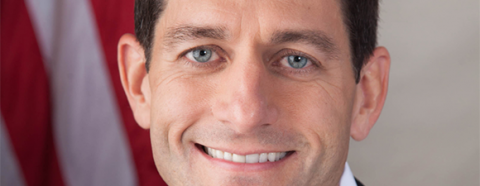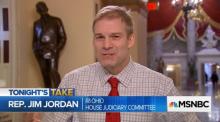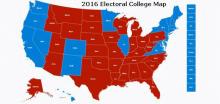
According to a Heritage Foundation online survey taken shortly after Paul Ryan became Speaker of the House in October 2015, 73% of U.S. voters agreed that the Republican-controlled Congress should not increase federal spending. Apparently the new Speaker of the House never got the memo.
Despite his reputation as a budget “hawk,” Paul Ryan has presided over an explosion of federal debt since the GOP won control of the House of Representatives in 2010 and he became chairman of the House Budget Committee. Less than two months after Ryan replaced his Republican establishment patron John Boehner as House Speaker, Ryan was the point man in passing a trillion-dollar stopgap budget that was praised by liberals for funding their priorities.
Not only did Ryan’s omnibus budget pay in full for the rest of Barack Obama’s “fundamental transformation” of America, it immediately hiked the federal deficit for this year by $130 billion according to a January report by the Congressional Budget Office. The projected budget shortfall is the first time the deficit has increased, relative to the economy, since 2009. Ryan can’t blame it on the Democrats, either. As Speaker of the House, he is in charge of the House of Representatives agenda. A bill doesn’t go anywhere until Ryan approves it first. What’s more, Republicans have controlled the U.S. Senate since early last year. Yet Republican leaders have pushed through violations of the across-the-board spending limits adopted in 2011. Democrats have certainly enabled the GOP spending addiction, but Republican congressional leaders have no one to blame but themselves.
However, as FedUp Political Action Committee reported last week, GOP big spenders may face their day of reckoning sooner than they might have feared. First, the 40-member House Freedom Caucus, composed entirely of conservative House Republicans, formally rejected the latest budget blueprint put forward by the House leadership. The leadership‘s plan – with Ryan’s full backing – upholds the budget-busting deal John Boehner struck with Barack Obama last year just before Boehner resigned from Congress. The House Freedom Caucus demands lower spending levels, and without their support Ryan lacks the numbers to get his budget plan adopted.
Not long after the House Freedom Caucus acted, the conservative House Republican Study Committee (RSC) weighed in with its own alternative to the leadership plan. The RSC proposes a budget total even lower than the one demanded by the House Freedom Caucus. With 170 members, the RSC has a lot of influence in determining the makeup of legislation coming out of the House. One way or another, rank-and-file House Republicans finally seem determined to slam the brakes on runaway spending even if they must drag House Speaker Ryan along kicking and screaming.
Watching the rise of outsider presidential candidates Donald Trump and Ted Cruz, many Republicans can certainly read the writing on the wall. Trump and Cruz have consistently shared more than 60% of the vote in Republican primary and caucus elections this year because they reject the business as usual attitude of GOP establishment darlings like Paul Ryan. Politicians know that numbers don’t lie. This year, the numbers are turning overwhelmingly against the establishment. Rank-and-file House Republicans are jumping on board that train before it runs them over. The choice between political survival and feeding the establishment’s spending addiction is not a difficult one for GOP congressmen to make. It remains to be seen if House Republicans will be looking for a new Speaker come the next session of Congress in January 2017, but who knows. Very few on Capitol Hill saw the rise of Donald Trump and Ted Cruz coming, either.




